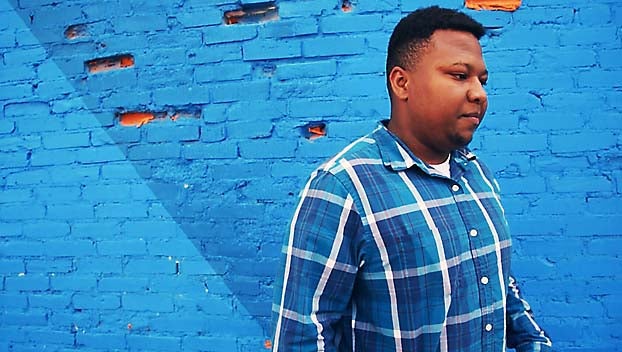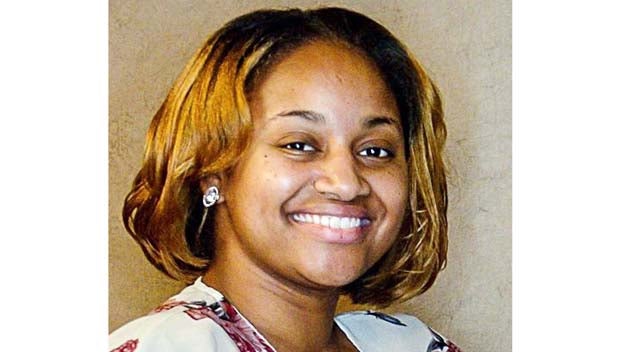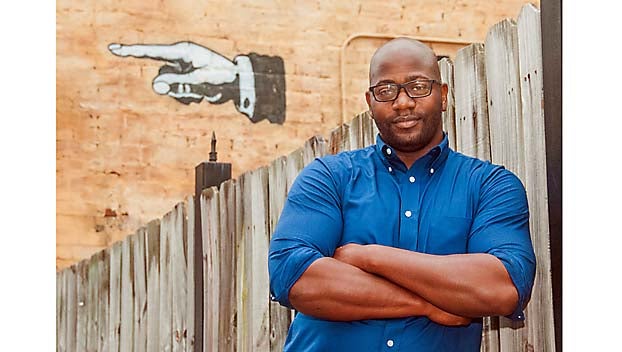Social workers on front lines, help Mississippi foster children overcome trauma, challenges
Published 1:08 am Monday, May 20, 2019
By Billy Watkins
JACKSON, Miss. — By the time she turned 6, Jessica Reese had been sexually abused repeatedly.
Mississippi Department of Child Protection Services took Reese and her younger brother out of the home and placed them in the custody of a female cousin.
That produced more nightmares.
“I found out later my cousin had a history of mental illness,” Reese said.
Reese, 25, still has a dent in her head from being struck by her cousin with a walking stick. Reese was held at gunpoint during an argument. And she and her brother were fed only when they asked for food — all before Reese was 11.
“A lot of stuff manifested in me. I definitely had anger issues,” she said. “I soon trusted no one. If I couldn’t trust my family, how could I trust anyone else?”
She and her brother bounced in and out of 14 foster care homes.
“I was 15 before I finally woke up and really started trying to build a life for myself,” she said. “I was dealing with a lot of stuff, and school hadn’t been a huge priority.”
But she managed to graduate from Vicksburg High School in 2012 and pursue a college education, first at the private historically black Tougaloo College in a suburb of Jackson, Miss., then at Holmes Community College in Utica, Miss.
“I wasn’t ready or prepared,” she said. “I can look back and see that. But now I want to go back, but I can’t.”
She has an outstanding fee at Hinds CC she can’t afford to pay. Until it’s paid, she can’t enroll in any Mississippi public college. And because she wasn’t in school at 21, she is no longer eligible for education assistance through the state.
Reese lives in Vicksburg and works at Warren Central Middle School as a substitute teacher, which does not require a college degree. The position earns $70 to $80 per day; a substitute teacher must work at least three days a week.
“I think Jessica will find a way to go back to school,” said Claire Graves, the Mississippi site director at First Place for Youth, an organization that supports foster youth as they learn to support themselves. “She is a determined young woman.”
Getting it right on a shoestring budget
Reese’s post-high school story isn’t uncommon in the U.S. Estimates of what proportion finish college with a bachelor’s degree range wildly, from 1 to 11%, because the tracking of students in foster care in higher education has been inconsistent and, in some cases, nonexistent.
Mississippi Department of Child Protective Services doesn’t keep track of that statistic but plans to starting now. But this much we know: As of 2017, 19% of Mississippi youth in foster care have attended a post-secondary institution by the age of 19 compared to 52% of nonfoster kids, according to the National Youth in Transition Database and the American Community Survey.
Forty-two percent of Mississippi youth in foster care have a high school diploma or GED at age 19 compared to 84% of nonfoster students in the state.
Twenty-two percent of youth who were in foster care in Mississippi were unemployed and not in school at age 17 compared to 6% of their nonfoster care peers.
The focus on education and transitional services for Mississippi’s foster care youth arose from the March 2004 Olivia Y lawsuit filed by Children’s Rights Inc. on behalf of abused and neglected children in the state, alleging that the state foster care system was failing to adequately protect children in its custody and provide necessary services. The lawsuit sought court-ordered changes in the system. A settlement was reached.
In 2016, the Mississippi Department of Child Protection Services was created as a separate agency in response to the deficiencies in the foster care system.
“Getting this right is important to all of us, but we’ve had to try and do it on a shoestring [budget],” said Lea Anne Brandon, director of communications with the new agency. “But things are improving. I think we can all see that.”
It’s about giving moral support
One of those programs responsible for that improvement is Youth Transition Support Services, which is funded by a federal grant.
“We are charged with serving kids 14 to 21 and connecting them with life skills — communication, decision making, how to wash their clothes, how to cook, all sorts of skills that will allow them to be independent,” said Mario Johnson, director of the program.
“We help the case worker build a transition plan for each of these youth. We identify what the needs are, what sort of connections they have as far as relatives or friends. We want to build them a support system that will help them get a college education.
“When I went to college and something came up, I had my mom or a brother or an uncle I could call on. It could be something as simple as changing a flat tire to where I’m going to eat Christmas dinner. It’s not about the support system being financially responsible. It’s about giving them the moral support that everyone needs, particularly at that age.”
Johnson pauses for a moment to gather himself.
“It’s easy to get emotional about this,” he said. “This is such a critical time in their lives, especially those 18 to 21 years. It sounds like a long time, but it’s not. We fight so hard … we know that how we engage with them is going to help determine what they’re going to do when they leave foster care.
“Most of these kids have suffered so much trauma from being neglected or abused that they are unable to form relationships.”
To help in the process, the program added transition navigators in 2017 to work with the youth individually, along with their social worker.
“We’ve been able to hire eight. We could use more, but the budget won’t allow it right now,” Johnson said. “But these navigators are critical to our success. They are the start of of the support system for a lot of these kids.”
At least two of the navigators grew up in foster care and went on to graduate from college.
Bennie Smith, 35, graduated from Mississippi State University in 2006 with a degree in social work. He lives in Columbus, Miss., and works with about 60 young people each month.
“It’s an intense job. I know the importance of it,” Smith said. “But that makes me love it.”
Jaszmen Hawthorne, 28, graduated from Jackson State University in 2013 with a degree in social work, then earned her master’s from Louisiana State University in 2018.
“This is the kind of job that made me want to do social work,” said Hawthorne, who lives in Biloxi, Miss., and covers the sizable Gulf Coast area. “I can tell these kids, ‘I’ve been where you are.’ And I mean that literally. I was talking with a young woman one night at a shelter that I had been in growing up. When I told her, ‘I’ve slept in this very room,’ I think it helped gain her trust on a new level.”
Johnson said, “Bennie and Jaszmen are looking at the world through the same lens a lot of these kids do. It can help them build beautiful relationships.”
And both have powerful stories of growing up.
Smith went into foster care at age 14, along with his two siblings.
“My dad was on drugs, my mother was an alcoholic,” he said. “We were living with my grandmother. There were 11 of us staying in a two-bedroom apartment. I slept on the floor.
“We were poor and just trying to survive. We would go down to the Texaco and wait for them to throw out their leftover food at night. That’s what we would eat on for a couple of days.
“But I was always able to see something positive. One of my best friends had a great family, and I was able to see what that looked like. I never missed school because I didn’t want to stay home all day. And I’d wash my clothes by hand so I was always clean.”
The family was eventually evicted from the apartment. “My parents would fight, and the apartment got damaged,” he said. “That’s when we went to a shelter.”
Smith and his brother were taken in by a foster family that owned a farm.
“All of a sudden, I’m a city boy with chores like feeding the cows and chickens and mowing a big ol’ yard,” he said. “Me and my brother started complaining — you know how teenagers are. The chores weren’t that bad at all, but we didn’t like them. We called our social worker and said we wanted to leave.”
They packed their bags, and the social worker came to get them.
“When we started walking out the door, I suddenly said, ‘I don’t want to go.’ My social worker asked, ‘Can he stay?’ The foster mom said, ‘I never told them they couldn’t.’
“That was the turning point in my life. I say it was God speaking to me. My brother left. And he’s been in and out of jail, and I’ve gone on to be a little successful.”
Living with his foster family on the farm “gave me structure and a support system that I needed to go on and get my education.”
Hawthorne went into foster care when she was 5 or 6 “because my mom was on drugs,” she said.
She was placed in several foster homes that didn’t work out. At 14, she was placed with a family in Hattiesburg, Miss., with whom she remains in contact. Hawthorne’s foster mom helped her move into her dormitory at Jackson State.
“I wasn’t the perfect kid when it came to education,” Hawthorne said. “But there came a point when I realized I needed to do better. Even with my biological mom’s problems, she always talked about doing good in school. I’ve never lost contact with my mom; she let me know that all she wanted was for me to graduate high school and go to college. So did my grandmother.”
That’s the kind of effect she wants to have on the youth she works with now.
“If they have no mentors, then they have nobody to push them,” Hawthorne said. “When I see complacency about education, that’s when I really go to work. I’ve found most to be receptive. But when a kid shuts down on me, that’s when I really become determined.
“I never leave the kids I’m working with without saying, ‘Love you!’ and ‘Make good decisions.’ Sometimes it’s just having an adult that you don’t want to disappoint that can make a difference.”
Said Smith: “We have a great team and a great leader in Mr. Johnson. We’re going to make this work. I was able to go to some of my kids’ high school graduations last May, and that was some proud moments for me. It really drove home the point even more why we’re doing this.”
Looking at foster care from the inside
Mississippi Youth Voice is another new program established to help youth in care graduate college. It is part of First Place for Youth, established in Mississippi in 2017 in partnership with the Jim Casey Youth Opportunities Initiative.
“We started Youth Voice in September 2018,” Graves said. “This is a way for kids who have been through foster care to talk with social workers and share with them ways they might be more effective in their jobs.
“Social workers don’t have it easy. They’re going to court, doing investigations, trying to help a child get an education voucher. I don’t envy them. But we think Youth Voice can provide some valuable input because they’re looking at this from the inside.”
Scentrellis Dixon, 22, and Andranella Lawyer, 23, are part of the Youth Voice team that will meet with social workers at eight sessions across the state in May.
Both are scheduled to graduate in December — Dixon from Jackson State, Lawyer from Holmes Community College.
Neither will be shy about sharing their opinions with social workers.
“I had one really good social worker, and I had some not-so-good social workers,” said Lawyer, who went into foster care at age 4 and lived in 15 foster homes. “I had totally shut down because of so many bad experiences. I wasn’t interested in education or anything else. There were times I didn’t care if I woke up the next morning.
“But one social worker opened up to me. She knew I was dealing with a lot of stuff, and she sat down with me and explained how she’d lost her father and was having a hard time dealing with it. She shared how she was trying to cope … it made me feel human. And it made me really open up to her, which allowed her to understand how to work with me.
“Social workers need to know that kids need to hear these words: ‘I’m not going to give up on you.’ They may not act like they hear that, but they do.”
Dixon entered custody at 16 when his mother suffered two debilitating strokes and he had no other relatives to take him in.
“When I was in foster care, I was told by my social worker I’d never make it,” Dixon recalled. “It hurt. It made me feel like I was nothing more than a few words she’d scribbled down about me on a piece of paper. I just don’t think they realize the impact they have.
“My main points will be that they need to remember that the kids they’re working with are humans. I think they get so caught up in their paperwork that they don’t take the time to build a relationship with that kid.
“They have to realize, they’re helping make life decisions for these kids. That’s a huge responsibility.
“Maybe the social workers will listen, maybe they won’t. But we at least have to try so the kids coming up now and later on might benefit from what we’re doing.”
Other programs
BREAKTHROUGH!, part of the Community Care Network that covers six counties on the Gulf Coast, focuses on teens who are about to age out of foster care at 18 and have no plans to attend college.
“If somebody doesn’t reach them, a lot of them will become homeless. They have nowhere to go,” said Shellie Carter, director of BREAKTHROUGH! “We have to be proactive. If they don’t have a high school diploma or a GED, we encourage them to go to a technical school and learn some skill that will allow them to make a living.
“Through our funding, we can put them in an apartment for up to 12 or 24 months. They have to find a job to stay.”
Opportunity Passport, part of the Jim Casey Youth Opportunities Initiative, is a financial literacy and matching savings program.
With the money he saved from a part-time job and the match from Opportunity Passport, Scentrellis Dixon of Jackson, who spent years in foster care, was able to buy his first car in March after obtaining his driver’s license in 2018.
He hasn’t yet figured out parallel parking, and driving in downtown Jackson makes him nervous.
“But just having a car … I’ll be sitting at my apartment thinking ‘I sure wish I could go to the store’ and forget I have a car to go in,” he said with a laugh. “I’m having to get used to that.”
This story was produced in conjunction with the Mississippi Center for Investigative Reporting.
It is part of a Juvenile Justice Information Exchange yearlong project on youth transitioning out of foster care. It’s made possible in part by The New York Foundling, which works with underserved children, families and adults with developmental disabilities. The JJIE is solely responsible for the content and maintains editorial independence.
More News










